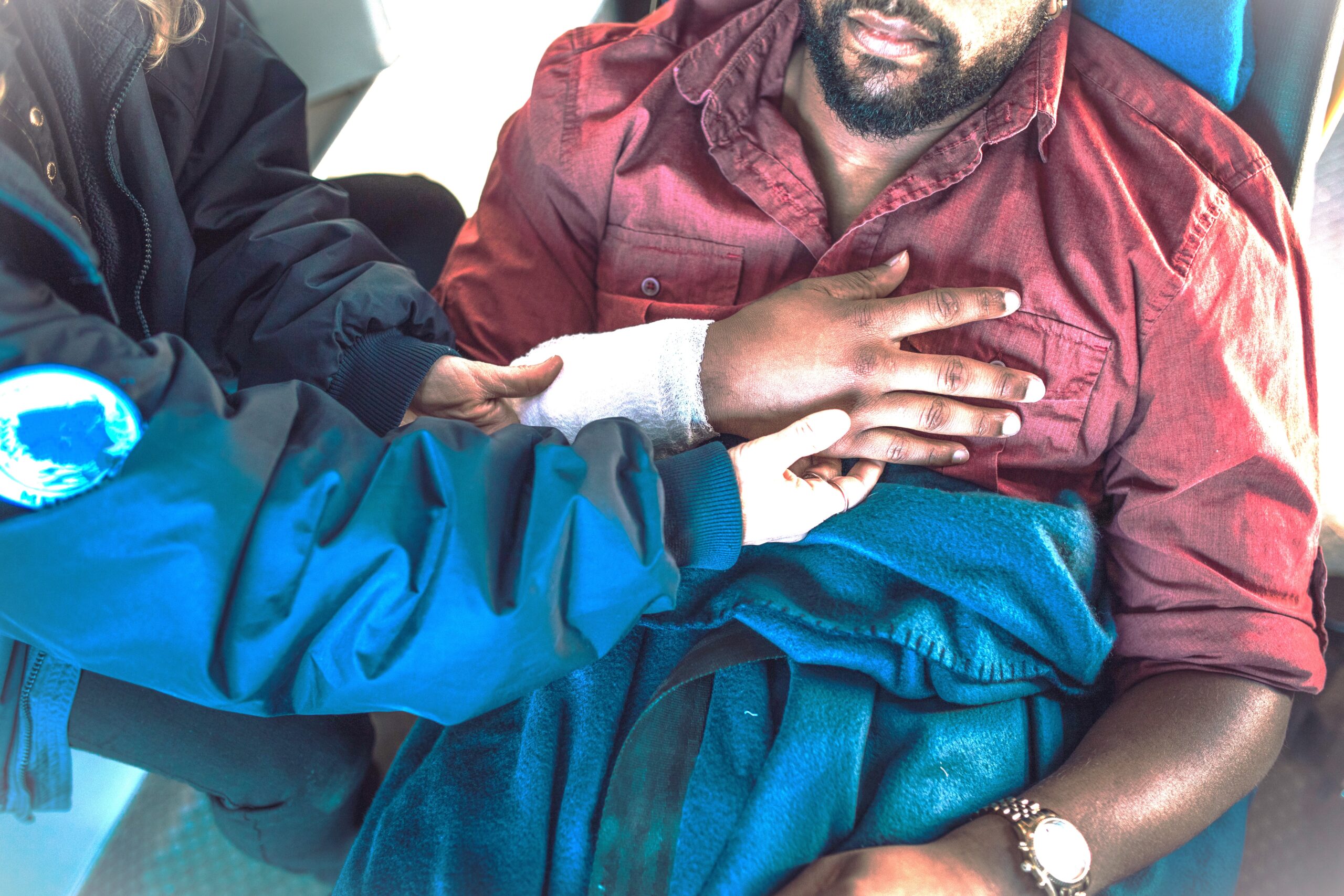Car accidents can range from minor fender benders to life-altering collisions, with varying degrees of severity. While most accidents result in minor injuries, some unfortunate incidents lead to catastrophic injuries that can have a profound and lasting impact on the lives of the individuals involved. In this blog, we will delve into what constitutes a catastrophic injury after a car accident, the types of injuries that fall under this category, their implications, and the challenges faced by those affected. Catastrophic injuries will change an entire family’s life because the injured victim has to depend on family members and nurses to perform functions that were trivial before the collision.
What are catastrophic injuries?
A catastrophic injury, as the name suggests, refers to a severe and debilitating injury that typically results in long-term or permanent disabilities. These injuries often have a significant impact on the victim’s ability to lead a normal life, perform daily activities, and engage in gainful employment.
Types of Catastrophic Injuries
Traumatic Brain Injuries (TBIs): TBIs occur when the brain sustains a severe blow or jolt during an accident. These injuries can result in cognitive impairments, memory loss, motor dysfunction, speech difficulties, and emotional or behavioral changes. TBIs can have lifelong consequences, requiring extensive medical care and rehabilitative therapies.
Spinal Cord Injuries (SCIs): SCIs involve damage to the spinal cord, leading to partial or complete paralysis below the injury site. Victims may experience paraplegia (loss of sensation and function in the lower body) or quadriplegia (loss of sensation and function in both the upper and lower body). SCIs often require long-term medical support, specialized equipment, and adaptations to the living environment.
Amputations: In severe car accidents, the force of impact may result in the traumatic loss of limbs or extremities. Amputations can significantly impact a person’s mobility, independence, and emotional well-being. Prosthetic limbs, physical therapy, and psychological support are often necessary to facilitate rehabilitation and adaptation to the new circumstances.
Severe Burn Injuries: When a car accident involves fire or explosions, victims may suffer severe burn injuries. These injuries can lead to excruciating pain, scarring, disfigurement, and physical limitations. Extensive medical treatment, including skin grafts and reconstructive surgeries, is often required, along with psychological counseling to address the emotional trauma.
Multiple Fractures: High-impact collisions can result in multiple fractures throughout the body. These fractures can be complex, requiring surgical intervention and prolonged periods of immobilization. The recovery process may involve physical therapy, occupational therapy, and assistive devices to restore mobility and function.
Implications and Challenges
Catastrophic injuries have far-reaching implications, affecting not only the injured individuals but also their families and support systems. Here are some of the challenges commonly faced:
- Emotional and Psychological Impact: Catastrophic injuries can lead to emotional trauma, depression, anxiety, and post-traumatic stress disorder (PTSD). Adjusting to the new circumstances and coming to terms with the loss of physical abilities can be an immense psychological challenge.
- Financial Burden: The cost of medical treatment, rehabilitation, assistive devices, home modifications, and ongoing care can be astronomical. Catastrophic injuries often require long-term medical support, which can strain the financial resources of the injured individual and their family.
- Reduced Quality of Life: The limitations imposed by catastrophic injuries can significantly impact the quality of life for the injured person. Simple tasks may become arduous, and independence may be compromised. Engaging in recreational activities, pursuing a career, or maintaining social relationships may become challenging.
- Legal Complexities: In many cases, car accidents resulting in catastrophic injuries require legal action to obtain compensation for medical expenses, lost wages, and pain and suffering. Navigating the legal process can be complex and time-consuming, adding to the stress and emotional burden on the injured person and their family.
Support and Rehabilitation
Support and rehabilitation are crucial for individuals with catastrophic injuries to regain independence and improve their quality of life. Multidisciplinary rehabilitation teams comprising physicians, physical therapists, occupational therapists, psychologists, and social workers work together to provide comprehensive care. They focus on physical therapy, occupational therapy, speech therapy, vocational rehabilitation, pain management, and mental health support to address the unique needs of each individual.
Additionally, support groups, counseling services, and advocacy organizations play a vital role in helping individuals and their families cope with the emotional, financial, and legal challenges associated with catastrophic injuries. Catastrophic injuries resulting from car accidents can have devastating consequences, altering lives in profound ways. Understanding the nature of these injuries, the challenges faced by those affected, and the importance of comprehensive support and rehabilitation is crucial. By raising awareness and promoting safety measures, we can strive to minimize the occurrence of catastrophic injuries and provide better care for those who unfortunately experience them.
Getting Legal Help after a Catastrophic Injury
Hiring a catastrophic injury lawyer is an important step in seeking legal representation and pursuing a claim for compensation after a car accident. Here are some steps to guide you in finding and hiring a qualified catastrophic injury lawyer:
Research and Gather Information: Start by conducting thorough research to identify potential lawyers who specialize in catastrophic injury cases. Look for attorneys with experience, a proven track record of successful outcomes, and a focus on personal injury law.
Seek Recommendations: Ask for recommendations from trusted sources, such as friends, family members, or other attorneys you may know. Personal referrals can provide valuable insights and help you find reputable lawyers.
Check Credentials and Experience: Verify the credentials and background of the lawyers you are considering. Look for their education, professional memberships, and any honors or awards they have received. Additionally, ensure they have extensive experience handling catastrophic injury cases specifically.
Schedule Initial Consultations: Reach out to the lawyers on your list and schedule initial consultations. Many lawyers offer free or low-cost initial consultations to evaluate your case and determine if they are the right fit for your needs.
Prepare Relevant Documents: Gather all relevant documents related to your car accident and injury, including accident reports, medical records, photographs, witness statements, and any correspondence with insurance companies. These documents will help the lawyer assess the strength of your case during the consultation.
Ask Relevant Questions: During the consultation, ask pertinent questions to assess the lawyer’s expertise, approach, and compatibility. Some questions to consider include:
- How many catastrophic injury cases have you handled, and what were the outcomes?
- What is your approach to handling cases like mine?
- What is your fee structure, and how do you handle payment?
- Will you personally handle my case, or will it be assigned to another attorney or paralegal?
- Evaluate Communication and Rapport: Pay attention to how well you communicate with the lawyer and how comfortable you feel discussing your case with them. It is important to have a good rapport and open lines of communication throughout the legal process.
Consider Fee Structure: Discuss the lawyer’s fee structure and ensure you have a clear understanding of their fees, including whether they work on a contingency fee basis (where they only receive payment if you win your case).
Review the Retainer Agreement: If you decide to hire a specific lawyer, carefully review the retainer agreement before signing. Ensure that you understand the terms and conditions, including the scope of representation, fees, and any additional expenses.
Follow Your Gut: Ultimately, trust your instincts and choose a catastrophic injury lawyer who you believe will diligently advocate for your rights and best interests.
Remember, hiring a catastrophic injury lawyer is an important decision, so take your time, gather information, and choose an attorney who has the skills, experience, and dedication to handle your case effectively.

